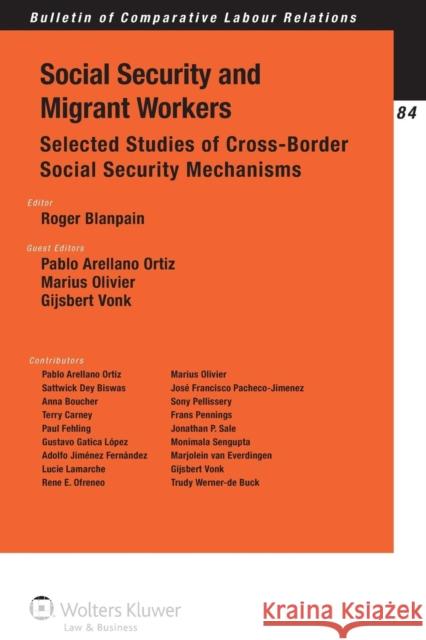Social Security and Migrant Workers: Selected Studies of Cross-Border Social Security Mechanisms » książka
Social Security and Migrant Workers: Selected Studies of Cross-Border Social Security Mechanisms
ISBN-13: 9789041147707 / Angielski / Miękka / 2013 / 264 str.
It is well known that migration law often imposes restrictions which severely influence entitlement and access to social security benefits for migrant workers. However, in the wake of new social problems created by economic globalization, new patterns of migration, and political pressures - and in an effort to make sure that countries treat each other's subjects equally and that rights to benefits are maintained - an increasing number of countries today have entered into bilateral and multilateral social security agreements with a basis in human rights. A network of such agreements is now starting to extend over the entire globe. In the overarching context of labour immigration and the formal state social security framework, eighteen noted academics and policy advisors focus on 'new solutions in a globalizing world'. There are discussions of important regional initiatives in Latin America, Africa and Europe, and special chapters on distinctive far-reaching developments in Costa Rica, the Philippines and India. Furthermore, attention is paid to social security relations entered into by two developed states, that is, Australia and the Netherlands. Among the topics touche are the following: how recent initiatives respond to new policy challenges; how these new solutions are connected to the human rights framework; harnessing migration for household and national development; relevant liaisons of the European Union with third states; the payment of social security benefits and remittances in the country of origin; extra-territorial protection for compatriots abroad; traditional immigration countries that, despite global trends, increasingly 'hide behind' their national borders; and how the network of social security treaties can be extended to various groups and risks hitherto unprotected. With its detailed attention to the growing 'knowledge construct' of international social security protection for migrants, this volume opens new ground in a debate that is gaining more attention in the international legal community, where it is becoming clear that a coherent and workable international labour and social security law is more urgently needed every day.











